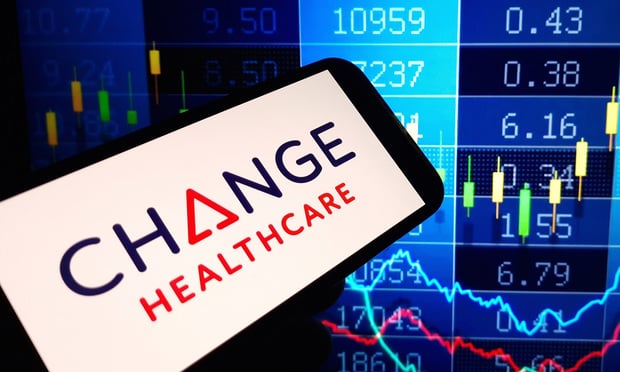The commissioner of the Food and Drug Administration questionswhether the right financial incentives are in place for drugmakerswho develop orphan drugs for rare diseases.
|In an interview last week, the FDA’s Scott Gottlieb said theOrphan Drug Act of 1983 has provided “an enormous amount of publichealth value” over the years, but the “market has changed.”
|Gottlieb said it’s time to ask the question: “Do we have theright incentives in place?”
|This story also ran on NPR. This story can be republished for free (details).The nearly 35-year-old law created incentives for companies todevelop “orphan drugs” considered not financially viable because they treat rarediseases affecting fewer than 200,000 people. Those incentivesinclude a waive on millions of dollars in fees, seven years ofmarket exclusivity and a tax break for research and developmentexpenses.
|The law proved successful — in the decade before it passed, only10 industry-supported rare-disease drugs had been brought tomarket, according to the FDA.
|Today, orphan drugs often carry six-figure price tags andpharmaceutical companies readily develop them. In 2016, 41 percent of the new drugs approved by the FDA were orphans.And 2017is on track to be a record year.
|In the past year, rare-disease drugs commanded attention throughnumerous pricing controversies. Examples include MarathonPharmaceuticals, which sold its $89,000 drug for Duchenne muscular dystrophy after publicoutcry, and Strongbridge Biopharma, which relaunched a glaucomadrug this year after winning orphan approval to treat a rare neuromuscular condition. Thedrug’s annual price tag is at least $109,500.
|“Clearly, [the Orphan Drug Act] has delivered,” said BernardMunos, a former corporate strategy adviser at drug giant Eli Lillywho is now a senior fellow at FasterCures. “In that same vein, Ithink a problem that we didn’t anticipate some 30 years ago is thepricing crisis.”
|The top 100 orphan drugs in the U.S. cost an average of $140,442per patient last year, according to EvaluatePharma.
|Gottlieb’s comments come after a year of scrutiny around orphandrugs.
|Continued on next page>>>
|Kaiser HealthNews (KHN) is a national health policy news service. It isan editorially independent program of the Henry J. Kaiser FamilyFoundation which is not affiliated with KaiserPermanente.
|An investigation by Kaiser Health News that NPR published and aired in January found that many drugs withorphan status weren’t entirely new when approved. Of about 450drugs that have won orphan approval since 1983, more than 70 weredrugs first greenlighted by the FDA for mass-market uses. Thoseinclude the cholesterol blockbuster Crestor, Abilify forpsychiatric disorders, and the rheumatoid arthritis drug Humira,the world’s best-selling drug.
|More than 80 other orphan drugs won FDA approval for more thanone rare disease, and in some cases, multiple rare diseases. Foreach approval, the drugmaker qualified for a fresh batch ofincentives. Altogether, KHN’s investigation found that about athird of drugs given the FDA’s orphan status have either beenrepurposed mass-market drugs or drugs that received multiple orphanapprovals.
|Gottlieb and other industry experts have said that repurposingcommon drugs to treat rare diseases is scientifically sound andgood for patients. But Gottlieb has also said high drug prices area public health concern, and in the phone interview Wednesday hequestioned whether the financial incentives should be different fordrugs that receive “secondary approvals.”
|“It could very well be that you need to think differently abouthow you would create a framework around the secondary indicationand the primary indication,” Gottlieb said, adding that he doesn’thave an answer but the agency has been asking the question.
|At the same time, Gottlieb pointed to rare diseases withouttreatments, even under the current incentive system: “You have toask why various uses of drugs aren’t getting studied.”
|Paul Melmeyer, director of federal policy at the NationalOrganization for Rare Disorders, said there is a lot of unmet needsince nearly 7,000 diseases lack treatments for an estimated 30 million Americans.
|While Gottlieb can change agency guidelines, any change to theOrphan Drug Act’s incentives would require congressional action.And there may be an appetite for such a change.
|Gottlieb became commissioner in May, a few months after threekey Republican senators called for a federal investigation intopotential abuses of the Orphan Drug Act. The GovernmentAccountability Office began an investigation last month.
|Congress included changes to orphan drug incentives in itssweeping tax legislation, reducing the orphan drug tax credit from50 percent of research and development costs to 25 percent — a movethat will save the government $32.5 billion from 2018 to 2027.Earlier versions of the bill included transparency requirements andan elimination of credits for repurposed drugs — both of which werestruck from the final version.
|Gottlieb, though, has not waited for the GAO or Congress beforedoing what he can to revamp the program. In late June, he announceda modernization plan that included closing a loophole that allowsmanufacturers to skip pediatric testing requirements whendeveloping a mass-market drug for treating rare diseases inchildren.
|When asked about the coming year, Gottlieb said: “We are goingto look for other ways to make sure the program is achieving itspublic health goals.”
|Sydney Lupkin contributed to this report.
|Kaiser HealthNews (KHN) is a national health policy news service. It is aneditorially independent program of the Henry J. Kaiser Family Foundation whichis not affiliated with Kaiser Permanente.
Complete your profile to continue reading and get FREE access to BenefitsPRO, part of your ALM digital membership.
Your access to unlimited BenefitsPRO content isn’t changing.
Once you are an ALM digital member, you’ll receive:
- Critical BenefitsPRO information including cutting edge post-reform success strategies, access to educational webcasts and videos, resources from industry leaders, and informative Newsletters.
- Exclusive discounts on ALM, BenefitsPRO magazine and BenefitsPRO.com events
- Access to other award-winning ALM websites including ThinkAdvisor.com and Law.com
Already have an account? Sign In
© 2024 ALM Global, LLC, All Rights Reserved. Request academic re-use from www.copyright.com. All other uses, submit a request to [email protected]. For more information visit Asset & Logo Licensing.








